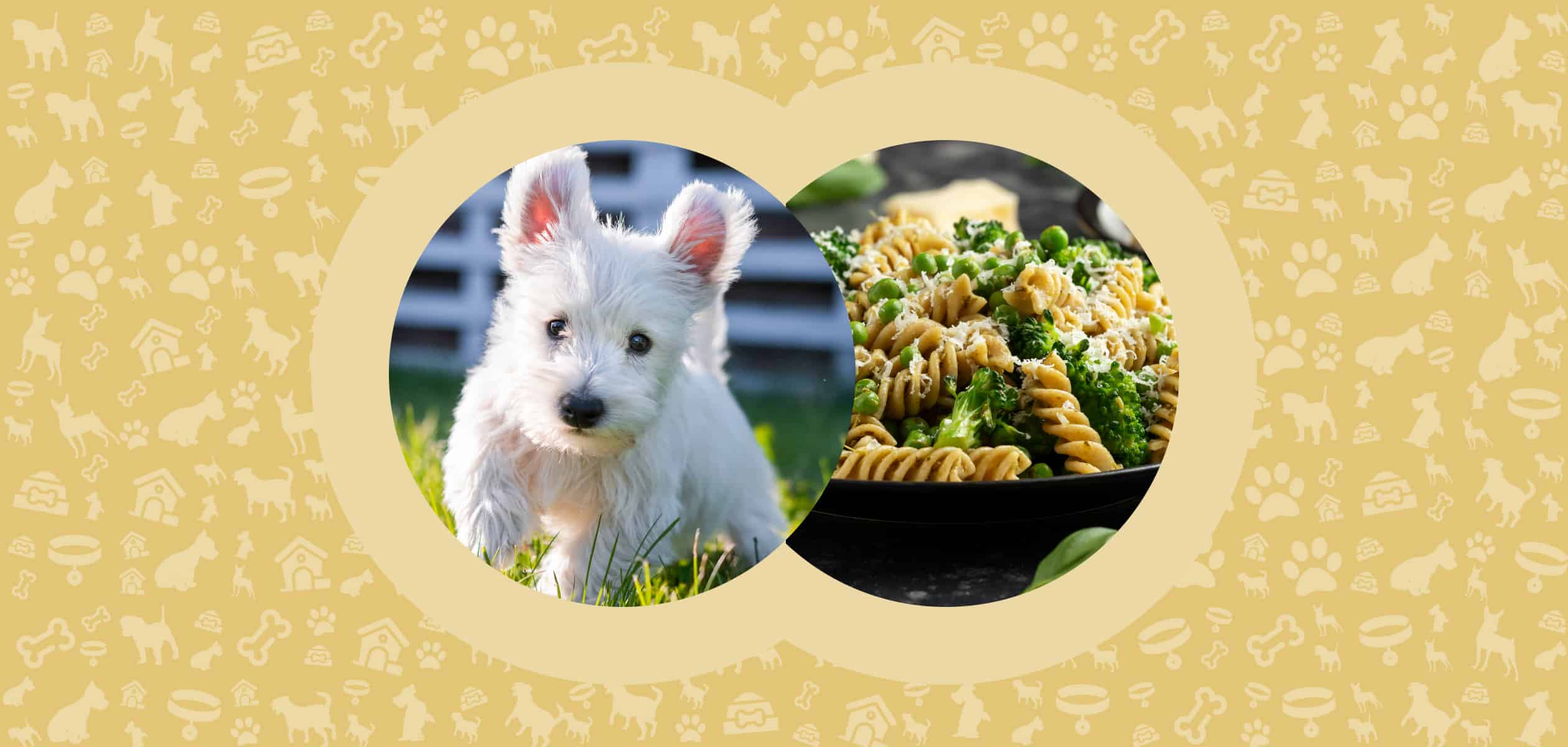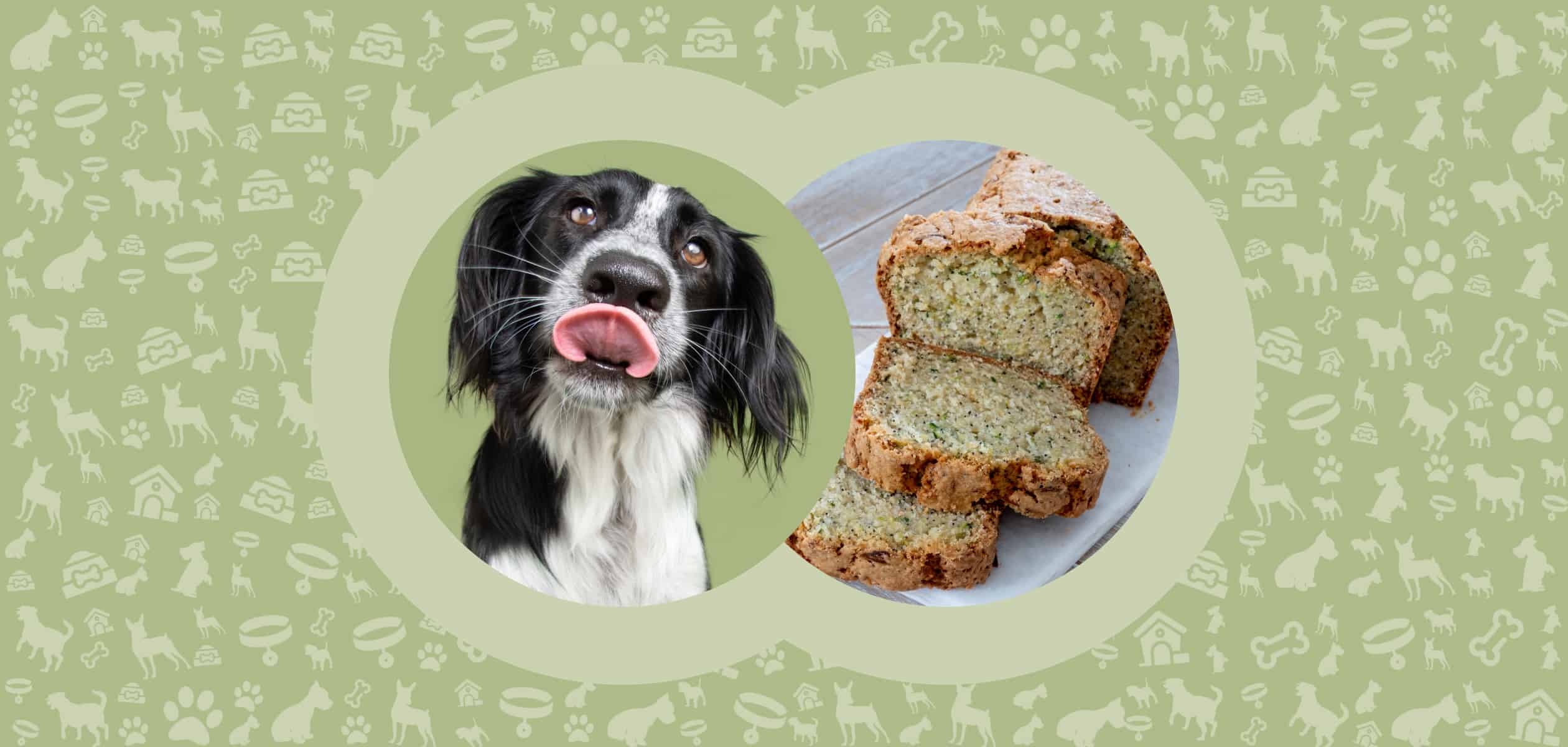Introduction
Yes, dogs can eat croissants. However, there are several precautions and things to consider. For example, you need to be mindful of the ingredients used in the preparation process as well as the type of filling.
Croissants and pastry, in general, are something most dogs enjoy eating. Although not particularly nutritious and health-boosting, croissants add versatility to the dog’s menu. Plus, tasty and nicely-textured croissants make excellent comfort food.
Why are Croissants Good for Dogs?
Croissants are delicious, and dogs love them. Plus, they are readily available and can be used to make a difference to the dog’s regular menu. Let’s carefully review the reasons croissants can be good for dogs.

Excellent Comfort Food
Croissants make amazing comfort food, same as any other freshly baked good. As unusual as it sounds, the comfort food concept applies to dogs the same as it applies to humans.
B-Complex Vitamins
All pastry contains certain amounts of B-complex vitamins. This is because baked goods are made of grains, and all grains are rich in vitamin B sources.
Efficient Pill Pockets
Dosing your dog with meds can be a challenging task. Using pill pockets makes thins much simpler. However, if you do not have an actual pill pocket on hand, a small chunk of croissants can do the trick.
Can Croissants be Bad for Dogs?
Yes, croissants can be bad for dogs. In fact, croissants can easily be on the list of foods that are not good for dogs. This is true if prepared with ingredients that are not dog-friendly or if served irresponsibly – too often and in large servings.
So, before you make up your mind and decide to give your dog croissants, take a minute to consider the potential side effects. Here are the reasons croissants can be bad for dogs.
Empty Calories
Croissants are classified as empty calories meaning they add to the overall food intake but do not provide unique nutrients or specific health benefits.
Gluten Sensitivity
Gluten sensitivity is an increasing concern in dogs. Since croissants are made of gluten-containing grains, it is obvious they can trigger digestive issues in dogs that cannot process gluten.
Grain Allergies
Another similar issue is grain allergies. Although not as common as most pet owners believe, wheat allergies are possible in dogs. They manifest with diarrhea, gassiness, and abdominal cramping, and pain.
Lactose Intolerance
Lactose intolerance is an issue present in almost all adult dogs. Dogs lack the lactase enzyme necessary for breaking down milk sugars. Croissants made with milk can trigger digestive upsets in lactose-intolerant dogs.
Too Much Sugar
Sugar is not a dog-friendly ingredient, and sadly, croissants are loaded with sugars. Too much sugar leads to hyperactivity, teeth issues, weight gain and increases the risk of developing diabetes.
High in Fats
Original croissant recipes are made with butter. Butter is healthy in small amounts, but dogs usually have trouble digesting it. Plus, excess consumption of fats can lead to acute pancreatitis and weight gain in the long run.
Harmful Ingredients
Instead of regular sugar, some store-bought croissants are made with xylitol – an artificial sweetener. Xylitol is highly toxic to dogs. Xylitol poisoning is a potentially fatal situation, thus requiring urgent treatment.
Hazardous Filling
The most popular filling in croissants is chocolate. Sadly, chocolate is extremely toxic to dogs. Chocolate intoxication is a life-threatening situation that requires immediate veterinary attention.
Artificial Additives
Store-bought croissants are loaded with artificial additives, preservatives, and flavors. Prolonged exposure to artificial ingredients is linked with an increased risk of cancer.
How Many Croissants Can my Dog Eat?
Croissants are classified as occasional treats. However, it is not advisable to practice the 10% treats rule. Namely, croissants do not offer any actual nutritional benefits, and their daily intake should be limited to less than 10%.
For example, if you have a medium-sized dog, you can give between two and three bite-sized chunks. Obviously, a smaller dog should be offered less, and a larger dog can eat a bit more.
In case you are parenting a puppy, it is best to keep croissants off the menu. As noted, they are not nutritious, and puppies have unique nutritional requirements. In simple words, croissants would be an empty calorie for puppies.

How to Prepare and Serve Croissants for Your Dog?
When it comes to dogs, croissants are a tricky food. Whether they are good or bad depends on the preparation method and serving practices. Namely, to ensure the safe adding of croissants to the menu, it is important to adhere to the recommended guidelines.
It all starts with preparation. Ideally, you need to skip on store-bought croissant versions and make them at home from scratch, using dog-friendly ingredients. If your dog does not suffer from specific sensitivities, you can make the dough as usual, but you need to make them plain – no filling and no sprinkled sugar or topping.
Once the croissants are baked, they need to cool down before serving. You do not want your dog burning itself on hot croissants. Also, feeding hot baked goods can be risky in dogs, considering the dough’s ability to rise inside the dog’s stomach.
With the croissants cooled down, tear your dog’s serving size into smaller bite-sized chunks and give them as treats. However, do not overdo it and refer to the serving portion.
Summary
All things considered, dogs can eat croissants as long as they are prepared in a dog-friendly manner and served occasionally. Also, pet owners need to be extra mindful about the serving size and stick to extra small chunks of croissants.
Giving the wrong type of croissant to a dog is a recipe for disaster. The same applies to offering croissants on a daily basis or in large amounts. As you already know, canines are carnivores and need a nutritionally rich and balanced diet.
Sources
- Dogs and lactose intolerance, PETCARERX, 2021
- Xylitol poisoning in dogs, Blue Cross, 2021
- Chocolate Poisoning in Dogs, Renee Schmid, DVM & Ahna Brutlag, DVM, 2021
- Wheat allergies in dogs, Helen Fletton, 2020







Leave a Comment